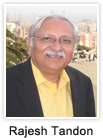Learning to do, learning to be, learning to learn!
 Purpose of education in general, and higher education in particular, has been variously defined by philosophers, educationists and policy-makers. In today’s context where knowledge economy is fast dominating the productive physical economy, quality and scale of provision of higher education assumes criticality. Conversations on social and economic relevance of higher education in India, in the above context, was the theme of FICCI 12th Higher Education Summit in Delhi (10-12 November 2016).
Purpose of education in general, and higher education in particular, has been variously defined by philosophers, educationists and policy-makers. In today’s context where knowledge economy is fast dominating the productive physical economy, quality and scale of provision of higher education assumes criticality. Conversations on social and economic relevance of higher education in India, in the above context, was the theme of FICCI 12th Higher Education Summit in Delhi (10-12 November 2016).
Both curriculum and pedagogical reforms were at the centre of the remarks made by various commentators in this conference. Ms. Martine Reicherts, DG of European Union for Education & Culture, emphasised the importance of soft skills and mobility for exposure as main achievements of the Erasmus programme in EU countries. Inaugurating the Summit, Mr. Chandrababu Naidu, Chief Minister of Andhra Pradesh, exhorted delegates to pay greater attention to field interactions for students, and knowledge applications for societal outcomes.
Dr. Furqan Qamar, Secretary General of Association of Indian Universities (AIU), urged that enrolment, equity and excellence need to be carefully balanced in India’s context. Dr. Ashish Nanda, Director of IIM, Ahmedabad, argued that there is no contradiction between ‘excellence and reach’. Dr. Rajan Saxena, Chairman, FICCI Higher Education Committee, emphasised the need for multiple forms and modes of engaged learning opportunities to prepare citizens of tomorrow.
A common thread across various conversations about ‘Education for Tomorrow’ was the modalities and methods of learning in today’s digital environment. Engaged stance for learning and teaching encourages experiential learning in regular field interactions outside the boundaries of the university. Engaged scholarship requires co-construction of knowledge in partnership with outside stakeholders. Engaged service is not charity but empowerment of both students and community.
Viewed in this way, higher education institutions can adopt an engaged stance with the world around them to prepare ethical global citizens. Engaged universities promote learning to do (skills and competencies), but also learning to be (with diversity and plurality) and learning to learn (so that human and societal resilience is sustained). As Prakash Javadekar, Minister for Human Resource Development, Government of India said, “…sustainable prosperity requires best (engaged) universities”.
As India and the world face enormous challenges in the years ahead, greater contributions of higher education to achievement of SDGs will be expected. In preparing universities to make that contribution, engaged stance in all its three missions will only be feasible if higher education institutions heed the message of UNESCO’s recent World Social Science Report that highlights inequalities in knowledge production and mobilisation around the world.




